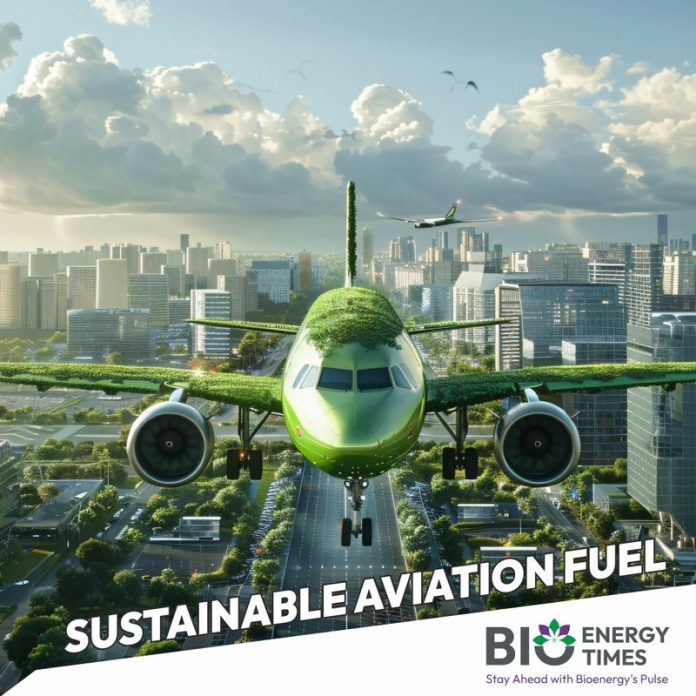The Indian Sugar & Bio-Energy Manufacturers Association (ISMA) has signed Memorandums of Understanding (MOUs) with The Energy and Resources Institute (TERI) and PRAJ Industries to advance sustainable bioenergy solutions. The focus will be on Sustainable Aviation Fuel (SAF), as well as exploring the potential of Bio-Ethanol, Bio-Gas, Green Bio-Hydrogen, and Green Methanol. This collaboration aims to build a bio-economy and low-carbon energy infrastructure in India, fostering knowledge sharing, policy advocacy, and capacity building in industry-government partnerships.
According to a press release, this new collaboration is designed to create a supportive environment for SAF production and deployment, in line with the government’s sustainability objectives. With the aviation industry’s carbon footprint increasing annually, ISMA’s MOUs are crucial for advancing India’s adoption of bioenergy solutions like SAF. The initiative will also support the country’s goal of blending 1% SAF with Aviation Turbine Fuel by 2027 and 5% by 2030, in compliance with the CORSIA mandates of the International Civil Aviation Organization (ICAO), which will commence in 2027 with its second voluntary pilot phase already underway (2024-26).
Deepak Ballani, Director General of ISMA, stated, “Today marks a significant step in our efforts to promote sustainable energy solutions for the aviation sector. The MOUs with TERI and PRAJ Industries represent not only a collaboration but a commitment to our vision of a greener future. SAF, produced from renewable resources, has the potential to greatly reduce greenhouse gas emissions, a major challenge with traditional jet fuels. Through this partnership, we will harness TERI’s research and policy expertise and PRAJ’s technology solutions to overcome these challenges and establish a robust bioenergy ecosystem.”
Ballani further emphasized, “At ISMA, we are dedicated to leading initiatives that emphasize collaboration, capacity building, and knowledge sharing to drive sustainable growth in both agriculture and bioenergy sectors. Together, we are positioning India as a global leader in bioenergy production, addressing both environmental and economic needs.”
The aviation industry contributes to 3% of global carbon emissions, nearly 1 billion metric tonnes annually. As the sector’s carbon footprint grows, the need for alternatives to traditional jet fuel becomes increasingly urgent.
SAF derived from the sugarcane industry, particularly from bagasse, presents a promising option due to its abundance, lower greenhouse gas emissions, and cost-effective technological feasibility.
ISMA’s latest collaboration underscores its ongoing efforts to help India achieve its bio-energy and sustainability goals by leveraging the capabilities of the sugarcane industry.
To read more about Sustainable Aviation Fuel Industry News, continue reading BioEnergyTimes.com















